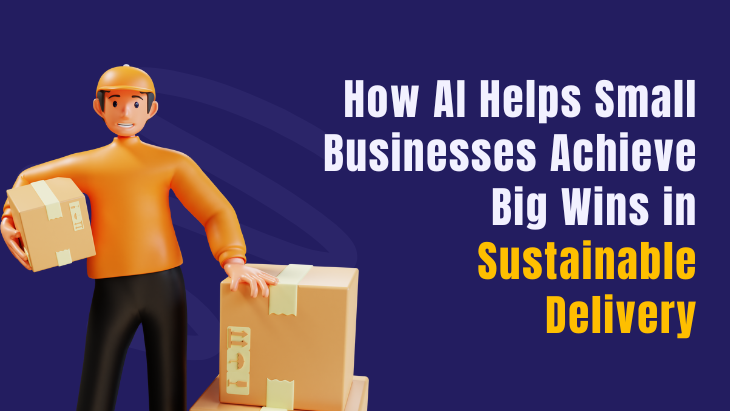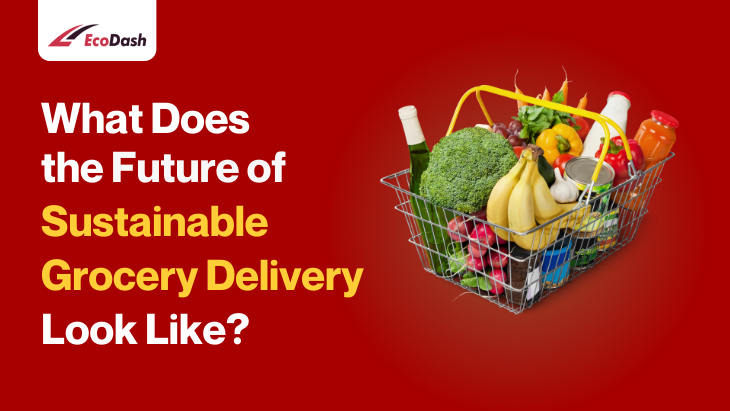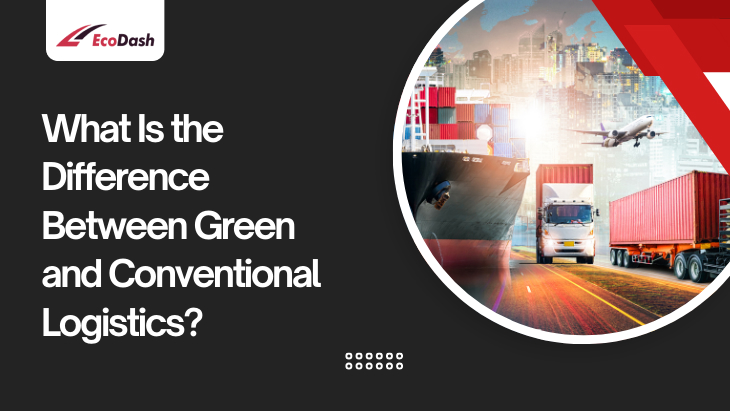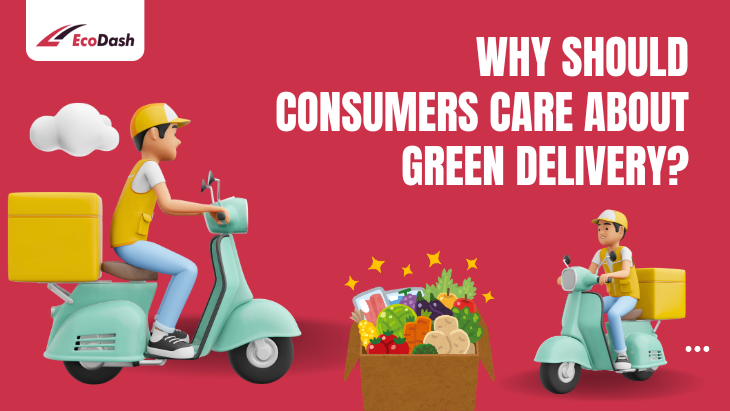Customer expectations have drastically changed as a result of the fast-paced world of online commerce, particularly with regard to delivery sustainability and speed. Fast grocery delivery service in Canada has become increasingly popular in Canada, not only in urban areas but also in suburban and rural areas. Nowadays, customers want their groceries delivered promptly, cheaply, and with the least possible negative impact on the environment. Such demand poses a challenge as well as an opportunity for small businesses. Thankfully, artificial intelligence (AI) is changing the game and allowing small grocery delivery services to compete with the big guys while maintaining lean, environmentally friendly, and customer-focused operations.
The Increasing Demand for Fast, Sustainable deliveries
Customers and governments are putting pressure on businesses to make their logistics more environmentally friendly as climate change, urban congestion, and rising fuel prices dominate news reports. However, finding a balance between sustainability and speed can be difficult for small businesses in Canada that provide quick grocery delivery services. Despite not having access to billion-dollar infrastructure or huge fleets, they still have to live up to the same high standards as larger corporations.
AI-Powered Route optimisation Lowers Carbon Emissions
AI systems use real-time data to identify the most fuel-efficient routes for delivery drivers, eliminating the need for human guesswork or static maps. This includes road closures, traffic patterns, weather predictions, and even customer availability. AI guarantees quicker deliveries and drastically reduces carbon emissions by reducing needless mileage and idling. For small grocery businesses in Canada with limited vehicles, this efficiency leads to reduced expenses and a more environmentally friendly operation.
Efficiency Is Increased with Dynamic Delivery Scheduling
AI enables companies to establish dynamic delivery windows based on availability, proximity, and urgency, in contrast to conventional delivery schedules that adhere to set time slots. In crowded cities like Toronto or Vancouver, where last-mile delivery can be erratic, such scheduling is especially helpful. Artificial intelligence (AI) tools automatically group orders that are close together and suggest the best times to use resources and cut down on trips. Because of this, small businesses in Canada that provide quick grocery deliveries can use fewer vehicles to fulfil more orders, which makes their business sustainable and scalable.
Improved Inventory Control Cuts Down on waste.
Sustainability begins at the warehouse or store itself and isn't just about delivery routes. Small grocery retailers can reduce overstock and food waste by using AI-powered inventory systems to accurately forecast demand. AI scrutinises seasonality, purchase patterns, and even local events to ensure the purchase and stocking of only essential items. Customers will receive fresher products as a result, there will be fewer expired goods on shelves, and less energy will be wasted on storage and refrigeration. Knowing that their preferred local delivery service reduces food waste is a powerful loyalty motivator for environmentally conscious customers.
Building Trust with Real-Time Delivery Tracking
Customers can receive real-time updates from order confirmation to doorstep delivery through AI-powered tracking systems. In addition to enhancing the customer experience, this transparency lowers the number of unsuccessful deliveries, which are one of the main causes of fuel and time waste in last-mile logistics. Prepared and informed customers lead to more successful delivery attempts and fewer follow-up trips. This results in a more sustainable model for small businesses because it enables them to use vehicles and labour more efficiently.
Delivery Vehicle Predictive Maintenance
For small delivery businesses, vehicle breakdowns or downtime can be particularly devastating. A single vehicle failure can delay multiple orders due to the limited backup resources. AI prevents such incidents by keeping an eye on the condition of the car and anticipating maintenance requirements before problems occur. To plan maintenance in advance, systems can monitor tire wear, engine performance, battery health, and mileage trends. This process lowers the likelihood of unplanned breakdowns, maintains delivery schedules, and guarantees that every vehicle runs as efficiently as possible—all of which are critical for preserving sustainability and speed.
Virtual assistants and AI chatbots lessen the workload for humans.
Another area where AI has significant benefits for small teams is customer service. Chatbots and AI-powered help desks can handle order enquiries, delivery rescheduling, and refund requests without the need for human agents. Additionally, AI assistants can remind clients to reorder frequently purchased items or offer tailored recommendations, increasing customer satisfaction and operational effectiveness. These tools help businesses outperform their competitors in Canada's rapid grocery delivery market, where customers have high expectations for service and little patience.
Endorsing Sustainable and Local Brands
AI also makes it possible for small businesses to select and advertise eco-friendly goods from nearby vendors. AI can determine which organic or eco-friendly products are in demand and suggest stocking them more prominently by examining consumer trends and preferences. This promotes other nearby companies and harmonises the delivery service with broader sustainability objectives. AI can also be used to optimise pricing and promotions, increasing consumers' accessibility and appeal to sustainable options.
Conclusion
AI is emerging as a crucial tool for small businesses to deliver groceries efficiently and sustainably. AI-powered solutions lower costs, boost productivity, and encourage environmentally friendly practices in a variety of areas, from customer communication and compliance reporting to route optimisation and inventory forecasting. Eco-Dash Adopting AI is not merely a technical advancement for Canadian fast food delivery businesses; rather, it is a calculated move that will help them expand, compete, and lead with a purpose. Businesses that use intelligent tools now will be the ones that succeed greatly in the future as customer expectations continue to rise.


 Cart
Cart







Leave a reply